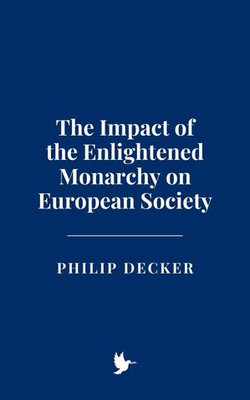This book explores the legacy and impact of the Enlightened Monarchs of the 18th century, focusing on figures such as Frederick the Great of Prussia, Catherine the Great of Russia, and Joseph II of Austria. These monarchs, influenced by the intellectual currents of the Enlightenment, sought to modernize their states by implementing reforms in law, education, religion, and governance, all while maintaining the absolute authority of the monarchy. Through deep analysis of their reigns, this book examines the challenges these monarchs faced in reconciling Enlightenment ideals with the political realities of their time. The text delves into their attempts to rationalize legal systems, promote religious tolerance, and create more efficient bureaucracies, while simultaneously confronting resistance from powerful institutions such as the nobility, the Church, and the military. The paradoxes inherent in Enlightened Absolutism are explored, alongside the limitations of these reforms in achieving true social and political equality. The book also investigates the indirect but significant influence these monarchs had on the intellectual climate that led to revolutionary movements, such as the French Revolution, marking the decline of absolute monarchy and the rise of modern democratic ideas. Through an exploration of their successes, failures, and contradictions, this book offers a comprehensive analysis of the Enlightened Monarchs and their lasting influence on the political landscape of Europe.



Share This eBook: